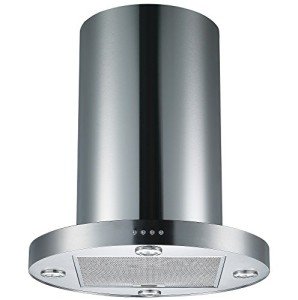Kitchen Island Cooker Hood Tools To Make Your Day-To-Day Life
페이지 정보
작성자 Victoria 댓글 0건 조회 1회 작성일 25-05-21 01:36본문
The Comprehensive Guide to Kitchen Island Cooker Hoods
When creating or renovating a kitchen, the choice of appliances and components is important in attaining both functionality and visual appeals. Among these elements, the kitchen island cooker hood plays an essential function in making sure a clean and enjoyable cooking environment. This article explores the benefits, types, installation considerations, and upkeep tips for kitchen island cooker hoods.
Understanding Kitchen Island Cooker Hoods
A kitchen island cooker hood, also understood as a vent hood, is a ventilation device set up above a kitchen island cooktop. Its primary function is to get rid of smoke, steam, grease, and smells created during cooking. Modern kitchen island hoods not just offer functionality however also include a distinct visual element to the kitchen design.
The Importance of a Cooker Hood
The necessity of a kitchen island kitchen extractor cooker hood can not be overemphasized. Here are numerous advantages:
- Air Quality Improvement: The main benefit of a cooker hood is improving indoor air quality by efficiently eliminating contaminants from the kitchen environment.
- Odor Reduction: wifihood By removing cooking smells, it assists maintain a fresh environment in the home.
- Defense of Kitchen Surfaces: Cooker hoods minimize grease accumulation on cabinets, walls, and other surface areas, lengthening their lifespan and keeping their look.
- Enhanced Cooking Experience: A well-ventilated kitchen enables for a more pleasant cooking experience, especially in open-concept spaces where the kitchen integrates with living locations.
Types of Kitchen Island Cooker Hoods
Kitchen island cooker hoods can be found in various styles and types, dealing with different kitchen designs and individual preferences. The following are the most typical:
| Type | Description |
|---|---|
| Canopy Hoods | Wall-mounted and utilized over a kitchen island; typically ducted for improved ventilation. |
| Downdraft Hoods | Integrated into the cooktop, these hoods increase when in usage and pull back when not, conserving area. |
| Chimney Hoods | Standalone units that have a chimney-like structure; they can be ducted or recirculated. |
| island extractor Range Hoods | Particularly created for island installations, these hoods are powerful and typically feature a streamlined design. |
| Professional-Grade Hoods | High-performance models typically utilized in commercial kitchens; they need expert installation and may be ducted outside. |
Selecting the Right Hood
When selecting the appropriate kitchen island cooker hood, think about the list below aspects:
- Size: The size of the hood should match or exceed the dimensions of the cooking surface area.
- Suction Power: Measured in CFM (Cubic Feet per Minute), greater CFM ratings suggest much better suction abilities. A variety of 300-1200 CFM is typical depending on cooking habits.
- Sound Levels: Look for designs that use quieter operation; hoods with lower sones (a step of loudness) can supply a more enjoyable cooking experience.
- Visual Appeal: Choose a style and surface that matches your kitchen style, whether modern, standard, or commercial.
- Ducted vs. Ductless: Ducted hoods vent outside, while ductless models filter air and recirculate it. Determine which is best for your kitchen layout.
Setup Considerations
The setup of a kitchen island cooker hood involves numerous important steps:

- Location: The hood must be focused above the cooktop, normally 30 to 36 inches above the range.
- Ductwork: For ducted hoods, prepare the essential ductwork for correct ventilation. This may involve cutting holes through walls or ceilings.
- Support Structure: Ensure that the ceiling can support the weight of the hood; extra bracing may be required.
- Electrical Supply: wifihood Most hoods need an electrical connection; prepare for the essential electrical wiring.
Property owners can choose professional setup to guarantee all guidelines and security standards are fulfilled.
Upkeep and Cleaning
To keep the performance and appearance of kitchen island cooker hoods, routine maintenance is vital. Below are some maintenance suggestions:
- Wash Filters Regularly: Depending on usage, clean or change grease filters each to 3 months. Most are dishwasher-safe.
- Wipe Down Surfaces: Regularly clean the exterior surface areas of the hood with a non-abrasive cleaner to avoid grease buildup.
- Inspect Ducts: For Wifihood ducted hoods, examine ductwork every year to guarantee it's clear of obstructions.
- Light Maintenance: If the hood has actually integrated lighting, replace bulbs as needed.
Regularly Asked Questions (FAQs)
1. How do I figure out the size of the hood I require?
To identify the suitable size, the hood ought to be at least as wide as the cooktop; for ideal protection, it's recommended that the hood extends about 3 inches on each side.

2. Can I set up a ductless hood in a kitchen without external venting?
Yes, ductless hoods filter air through charcoal filters and recirculate it back into the kitchen, making them appropriate for areas without external venting.
3. Exist energy-efficient alternatives for kitchen island cooker hoods?
Yes, numerous brand names use energy-efficient models geared up with LED lighting and energy-saving features, contributing to minimized energy usage.
4. How typically should I change the filters?
Depending upon use, grease filters ought to be changed or cleaned up monthly, while charcoal filters (for ductless hoods) usually need replacement every six months.
A kitchen island cooker hood is a main component in modern-day kitchen areas, offering vital ventilation while improving looks. With numerous styles, functionality, and setup considerations, picking the ideal hood needs extensive examination of private requirements. By committing to routine maintenance and appropriate care, homeowners can delight in a cleaner, fresher kitchen environment for several years to come.
댓글목록
등록된 댓글이 없습니다.